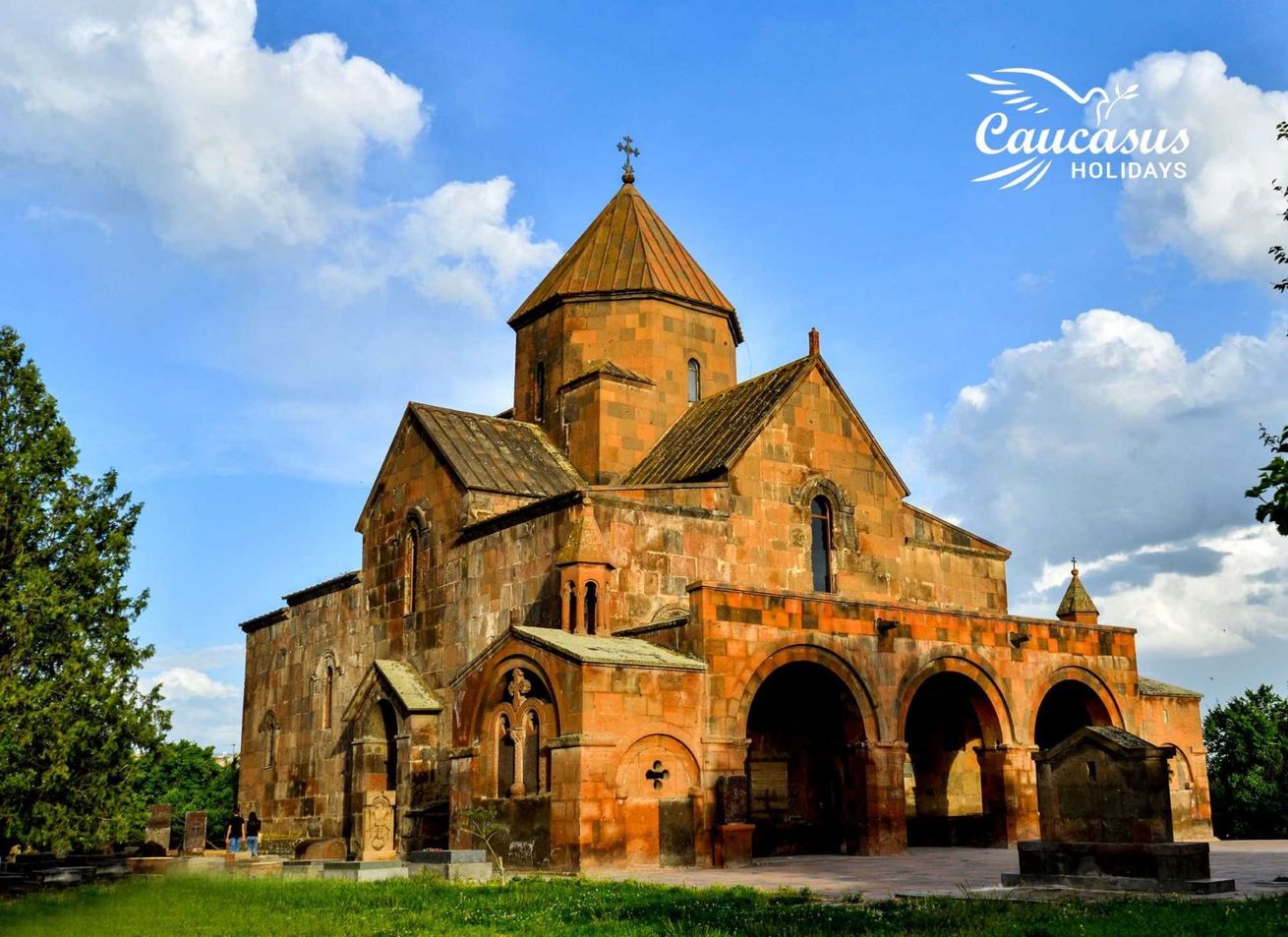Travel Blog
Echmiadzin city, also known as Vagharshapat, is the 4th largest city of Armenia located 10 km north from Armenian-Turkish border, Armavir region. Echmiadzin history is long and the story of its name is interesting. The first record about this city was found in the II century B.C. The city received its name Vagharshapat after the king Vagharsh I, who did some constructions there and renamed it.
The story of name “Echmiadzin” has a biblical background. As historian Agathangelos notes, Jesus prepoints the place where “house for prayer” should be built in memory of Saint Hripsimean Virgins in Gregory the Illuminator’s dream. Word Echmiadzin means “the place where the Only Begotten descended”. Echmiadzin city, also known as Vagharshapat, is the 4th largest city of Armenia located 10 km north from Armenian-Turkish border, Armavir region.The city received its name Vagharshapat after the king Vagharsh I, who did some constructions there and renamed it. The first record about this city was found in the II century B.C.
As a religious and spiritual center of Armenia Echmiadzin raised its importance after adopting Christianity as state religion in 301, and, thus becoming the first Christian nation in the world. Since then the city begins to be considered as not only spiritual center, but also educational and cultural one. For centuries Armenian church has played a great role in preserving national identity and educating generations. During the Armenian Genocide churches here were shelter for orphans survived from massacres in Western Armenian territory. At the end of XIX century Echmiadzin was one of the most influential cultural centers in Armenia.
If you think the only Echmiadzin church is Mother See of Holy Echmiadzin, then you need to explore the city more. Saint Hripsime Church (618 AD), Saint Gayane Church (630 AD), Saint Shoghakat Church (built in 1694 on the place of the 4th-century chapel), Saint Mariam Astvatsatsin Church (1767) – all these are old churches each with an astonishing story behind. What is more interesting, all of them are inscripted on the UNESCO World Heritage List.
Mother Cathedral of Echmiadzin, built in the 4th century by St. Gregory the Illuminator and King Trdat III, is the Seat of the Catholicos of All Armenians, and also spiritual center of Armenian Church and people all over the world. Excavations show that it was built on the place of pagan fire altar. People call cathedral as “illuminated by light” because it was built not by human-architecture, but by heavenly architecture, who outlined church with his light. During centuries the Mother Cathedral was reconstructed many times, but the current appearance is close to what Gregory the Illuminator had seen in his dream. With its unique architecture cathedral will not leave the visitors indifferent.
The historical excursion doesn’t end by visiting churches only. Mother Cathedral of Holly Echmiadzin has a museum where especially 3 very important things are kept: Holy Lance (Geghard), which pierced Christ’s side during Crucifixion, the Right Hand of Saint Gregory the Illuminator (gold artwork on which his twelve sufferings are depicted), and the relic of Noah’s Ark. The relic was found by Patriarch St. Hakob. The legend says (4th century) that he decides to climbed Mount Ararat to find the Ark. When returning back he falls asleep by God’s will, and the angel places the relic under his head.
In the territory of Cathedral you can also find Ruben Sevak Museum, Treasury Museum, Baptistry, Bookstore, Vatche and Tamar Manoukian Library. You can find more information on Echmiadzin cathedral opening hours and not only in the respective website.
Today Echmiadzin is considered as one of the most attractive cities in Armenia with all the conveniences to live and work. It has huge potential for agriculture, fishery and some factories can also be found in the city. In 2007 Echmiadzin-Vagharshapat became member of the Organization of World Heritage Cities.
As noted previously, Armenia is the first to adopt Christianity as state religion. Hence, it is worth mentioning that having a spiritual city, being deeply connected to its Christian history and preserving it, Armenia became the country visited by Pope Francis in 2016. It was named as “Visit to the First Christian Nation”, and was an exceptional event for Christian community in the world. After this remarkable event bronze statue of poet and monk Saint Gregory of Narek (Grigor Narekatsi, 10th century) unveils in Vatican Gardens.


